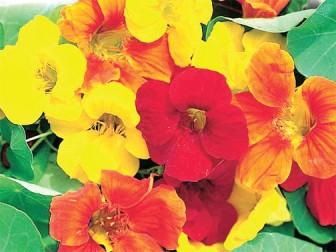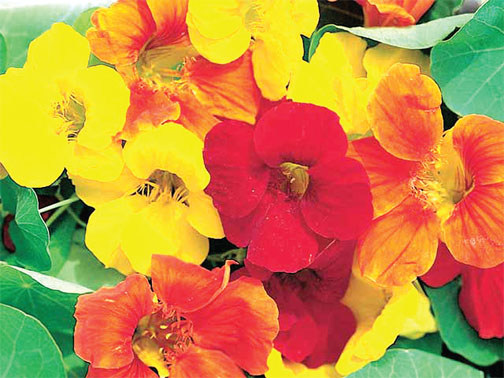There is a plant which has been grown in Europe for over four hundred years and which I believe originated in North America. It is often referred to as the penny plant but it is perhaps more widely known as Honesty. It belongs to the family Cruciferae and has as its relatives such stalwarts as the cabbage, brussel sprouts, and broccoli. In other words a member of the cabbage family. Honesty, or to give it its proper name, Lunaria annua, is an annual plant. I suppose the name penny plant was derived from the shape of its seed pod which is oval, flat and produces plants up to three feet high. They will need to be given a light covering of sifted compost. The flowers I would describe as very attractive and are normally purple, but don’t be surprised if they turn out to be lilac or even white. English gardeners often cut the flowers when they have produced seed pods and hang them upside down in a dry garden shed, but in a tropical climate they may get mildew. I have had moderate success with growing honesty, and if you can get your hands on any of the seed from nurserymen in the USA or the UK they are worth a serious try.

There are two main grasses which are used in fine ornamental lawns and in special areas like the lawn tennis court. They are the varieties of Bermuda and savannah grasses. In the tropics they are planted, not sown. Sowing grass is just asking for trouble with our rain intensity. Seed is too expensive to waste by having it all washed away. Planting grass is the most effective way to establish a lawn, although it will take a few days to settle down.

However, long before that stage is reached they can give great joy. The Ceylon willow, Ficus benjamina (I suppose one must now refer to it as the Sri Lanka willow) is a fine and graceful tree for the house and doesn’t grow too quickly. It’s a close relative of India rubber tree Ficus elastica and its varieties enjoy worldwide popularity as house and office plants as does the dumb cane (Dieffenbachia), the spider plant (Chlorophytum), and the Russian violet (Episcia). The last two named are excellent for growing in hanging baskets on the patio. Happy gardening and may your God go with you.





